Breaking News


Popular News

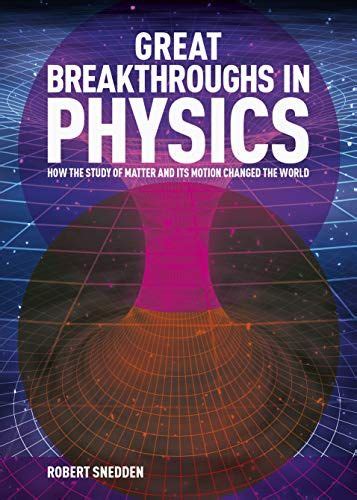
Explore the fundamental laws of physics, quantum mechanics, and Einstein’s theory of relativity. Discover breakthroughs in astrophysics and applications in everyday life.Physics is a subject that has captured the wonder and curiosity of generations, from the ancient Greeks pondering the nature of matter to the groundbreaking discoveries of modern scientists. In this blog post, we will delve into the fascinating world of physics, exploring key concepts and breakthroughs that have shaped our understanding of the universe. From fundamental laws that govern the motion of objects to the mind-bending theories of quantum mechanics and Einstein’s theory of relativity, we will unravel the mysteries of the physical world. We will also take a closer look at the exciting breakthroughs in astrophysics that have expanded our knowledge of the cosmos, as well as the practical applications of physics in our everyday lives. Join us on this journey through the wonders of physics, and prepare to be amazed by the incredible insights and discoveries that have transformed our understanding of the world around us.
Contents
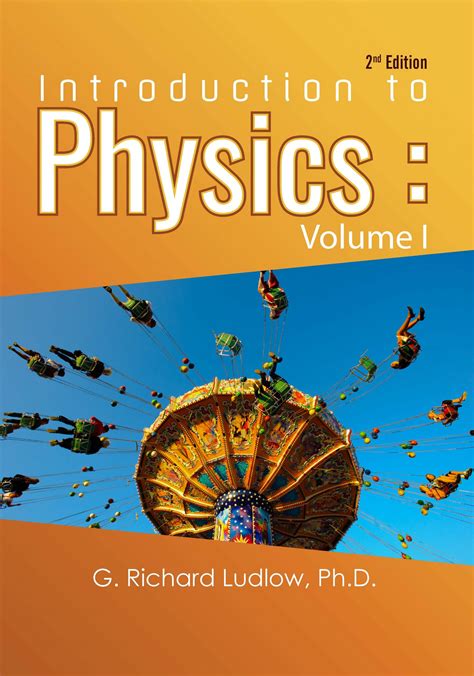
Physics is the branch of science that deals with the study of matter, energy, and the interactions between them. It seeks to understand the fundamental principles that govern the behavior of the universe. From the smallest subatomic particles to the largest galaxies, physics encompasses a wide range of phenomena, making it a truly fascinating and diverse field of study.
One of the key concepts in physics is the idea of motion and the forces that cause it. Whether it’s the movement of an object on Earth or the orbit of a planet in space, physics seeks to explain why and how things move the way they do. This concept of motion and forces is fundamental to our understanding of the natural world and forms the basis for many of the laws and principles of physics.
Another important aspect of physics is the study of energy and its various forms. From potential energy stored in an object to the kinetic energy of a moving particle, physics helps us understand how energy is transformed and transferred in different systems. Understanding these principles is crucial not only for advancing our knowledge of the universe but also for developing practical applications in various fields.
These key concepts are just scratching the surface of the vast and complex world of physics. As we delve deeper into this captivating field, we will explore the fundamental laws of physics, quantum mechanics, Einstein’s theory of relativity, and so much more. Stay tuned as we embark on this exciting journey through the fascinating world of physics.
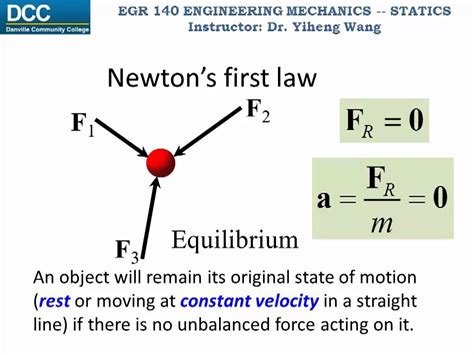
The fundamental laws of physics are the basic principles and rules that govern the natural world. These laws form the foundation of our understanding of the physical universe and provide the framework for all scientific research and technological advancements. The study of these laws allows us to comprehend the behavior of matter and energy in the universe, from the smallest particles to the largest celestial bodies.
One of the most well-known fundamental laws of physics is Newtons’s laws of motion, which describe how objects move and interact with each other. These laws have been instrumental in the development of modern engineering and technology. Another important law is the law of conservation of energy, which states that energy cannot be created or destroyed, only transformed from one form to another. This principle is essential in understanding the behavior of energy in various physical systems.
Furthermore, the laws of thermodynamics are fundamental principles that govern the behavior of heat and energy. These laws have played a crucial role in the development of modern mechanical systems, such as engines and refrigeration units. In addition, the theory of relativity, proposed by Albert Einstein, introduced a new set of fundamental laws that described the behavior of objects at very high speeds and in strong gravitational fields, revolutionizing our understanding of the universe.
Overall, the fundamental laws of physics provide the essential framework for understanding the natural world and have led to countless breakthroughs in science and technology. By studying and applying these laws, scientists and engineers continue to push the boundaries of human knowledge and achieve remarkable feats in our exploration of the universe.
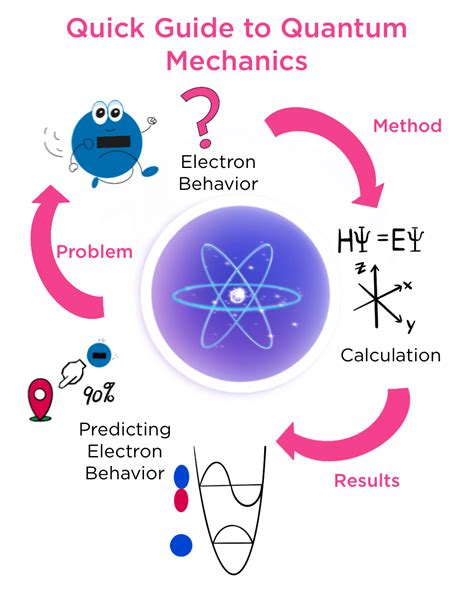
Quantum mechanics is a fundamental theory in physics that describes the behavior of particles at the atomic and subatomic levels. It is a highly complex and fascinating field, characterized by concepts such as wave-particle duality and Heisenberg’s uncertainty principle.
In quantum mechanics, particles such as electrons and photons can exist in multiple states simultaneously, a phenomenon known as superposition. This is in stark contrast to classical physics, where objects are typically observed to be in a single, well-defined state at any given time.
One of the central tenets of quantum mechanics is the concept of entanglement, where particles become intrinsically linked to one another, regardless of the distance between them. This phenomenon has been the subject of intense study and has the potential to revolutionize fields such as computing and telecommunications.
Quantum mechanics has also led to the development of new technologies such as quantum computing and cryptography, which harness the unique properties of quantum systems to perform tasks that are infeasible with classical computers and communication systems.
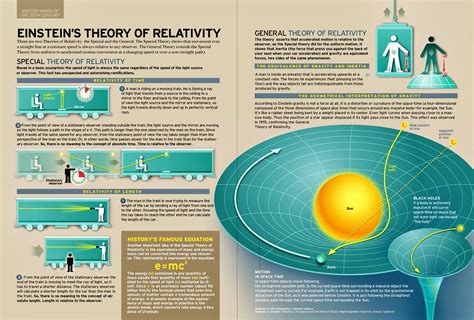
The Theory of Relativity is one of the most important concepts in the field of Physics. It was formulated by the legendary physicist Albert Einstein in the early 20th century. This groundbreaking theory completely revolutionized our understanding of space and time and has had a profound impact on the world of science and technology.
One of the key components of Einstein’s Theory of Relativity is the concept of general relativity, which states that gravity is not a force as it was traditionally believed, but rather a curvature in the fabric of space-time caused by mass and energy. This idea has led to a new understanding of the universe and has been confirmed through numerous experiments and observations.
In addition to general relativity, Einstein also developed the concept of special relativity, which describes the behavior of objects moving at high speeds relative to each other. This theory introduced the famous equation E=mc^2, which equates energy (E) with mass (m) and the speed of light (c). This equation has had a major impact on the field of nuclear physics and is the basis for the development of nuclear power and atomic weapons.
In conclusion, Einstein’s Theory of Relativity has had a profound impact on the world of physics and has altered our understanding of the fundamental laws of the universe. This theory has led to numerous breakthroughs in cosmology, astrophysics, and technology, and continues to inspire researchers and scientists to this day.

The Fascinating World of Physics: Key Concepts and Breakthroughs
Astrophysics is a field that constantly pushes the boundaries of our understanding of the universe. Scientists and researchers in this discipline have made remarkable breakthroughs that have revolutionized our perception of the cosmos.
One of the most significant breakthroughs in astrophysics is the discovery of gravitational waves. These ripples in spacetime were first predicted by Albert Einstein in his theory of general relativity. In 2015, the Laser Interferometer Gravitational-Wave Observatory (LIGO) made history by detecting gravitational waves emanating from the collision of two black holes. This groundbreaking discovery provided unequivocal evidence for the existence of gravitational waves and opened up a new frontier for studying the cosmos.
Another breakthrough that has captivated the world of astrophysics is the observation of exoplanets. For centuries, astronomers have speculated about the existence of planets beyond our solar system. In recent years, advancements in telescopic technology and observational techniques have allowed scientists to detect and characterize thousands of exoplanets. These discoveries have expanded our understanding of planetary systems and the potential for life beyond Earth.
The study of dark matter and dark energy has also been a focal point in astrophysics breakthroughs. While the presence of dark matter and dark energy remains largely elusive to direct observation, astrophysicists have devised elaborate methods to infer their existence based on the gravitational effects they exert on celestial objects. Understanding the nature of dark matter and dark energy is one of the most pressing questions in contemporary astrophysics, and ongoing breakthroughs continue to shed light on these enigmatic components of the universe.
| Breakthrough | Significance |
|---|---|
| Gravitational Waves | Verified prediction of Einstein’s theory of general relativity |
| Exoplanet Observations | Expanded our knowledge of planetary systems |
| Dark Matter and Dark Energy | Continued exploration of fundamental components of the universe |
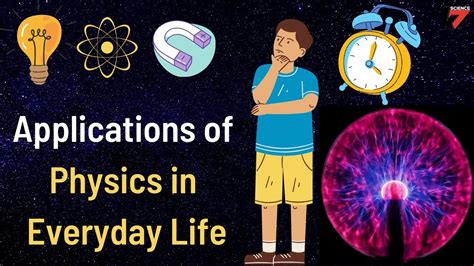
Physics is all around us, shaping the world we live in and influencing our daily activities. From the moment we wake up in the morning to the time we go to bed at night, we are constantly interacting with and benefiting from the applications of physics in everyday life.
One key application of physics in everyday life is the use of electricity. Whether it’s turning on a light switch, using an electronic device, or even driving a car, electricity plays a vital role in modern society. Understanding the principles of electricity and the physics behind circuits has allowed for the development of countless technologies that we now rely on.
Another important application of physics is in the field of medicine. The use of medical imaging technologies such as X-rays, MRI, and ultrasound all rely on the principles of physics to provide valuable diagnostic information. Additionally, the development of medical devices and equipment, such as pacemakers and prosthetics, are all made possible through the application of physics.
Furthermore, the principles of physics are essential in the design and construction of buildings and infrastructure. Understanding the behavior of materials and the forces acting upon them allows engineers to create safe and stable structures. From the construction of bridges and skyscrapers to the development of transportation systems, physics plays a crucial role in shaping our urban environment.

What is the concept of quantum mechanics?
Quantum mechanics is the branch of physics that focuses on the behavior of particles at the atomic and subatomic levels. It introduces the idea of quantized properties, such as energy and angular momentum, and is essential in understanding the behavior of matter and energy at the smallest scales.
What is the theory of relativity?
The theory of relativity, proposed by Albert Einstein, consists of two major ideas: special relativity and general relativity. Special relativity deals with the relationship between space and time, while general relativity explains the force of gravity as the curvature of spacetime caused by mass and energy.
What are the key concepts of classical mechanics?
Classical mechanics, also known as Newtonian mechanics, is based on the principles formulated by Sir Isaac Newton. It describes the motion of objects using Newton’s laws of motion and the law of universal gravitation. Key concepts include inertia, acceleration, force, and momentum.
What is the significance of the Higgs boson?
The Higgs boson is a subatomic particle that was theorized to exist as part of the mechanism that gives other particles mass. Its discovery was a major breakthrough in particle physics and confirmed the validity of the Higgs field, which is essential in our current understanding of the standard model of particle physics.
How does the concept of entropy relate to the second law of thermodynamics?
The second law of thermodynamics states that the total entropy of an isolated system can never decrease over time. Entropy is a measure of the amount of disorder or randomness in a system, and it tends to increase in natural processes. This concept is crucial in understanding energy transfer and the direction of physical processes.
What is the wave-particle duality?
The wave-particle duality is a fundamental concept in quantum mechanics, suggesting that particles, such as electrons and photons, exhibit both wave-like and particle-like properties. This duality challenges the classical notion of distinct particles and waves, and is exemplified in phenomena such as the double-slit experiment.
What are some of the current frontiers in physics research?
Some current frontiers in physics research include the study of dark matter and dark energy, the quest for a unified theory of quantum mechanics and general relativity, and the exploration of quantum computing and quantum communication. These areas hold the potential for groundbreaking discoveries and technological advancements.